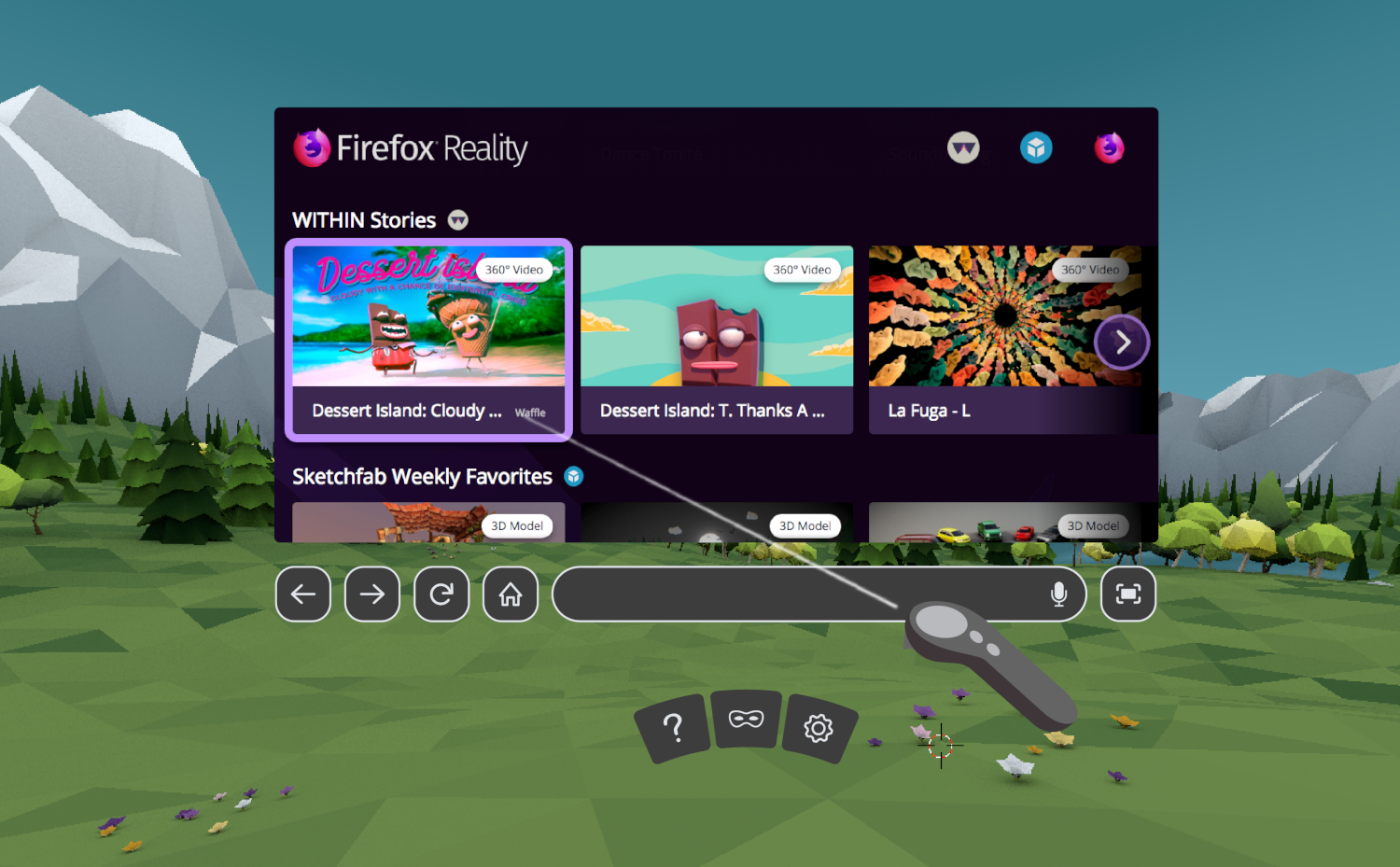Mozilla Releases VR and AR Firefox Browser for Oculus, Viveport, Daydream
People browse the web on practically every device they own. Mozilla knows that as well as every other browser maker, which is why Firefox is available for PC, mobile devices and, as of today, the Viveport, Oculus and Daydream platforms via the new Firefox Reality browser.
Firefox Reality is based off the Firefox Quantum core Mozilla developed for mobile devices. The organization said this allows its browser to perform well on VR, AR and mixed reality devices because it doesn't expect the full power of a connected PC to be devoted to browsing the web. Firefox Reality also features private browsing, just like other versions of Firefox, if you don't want someone knowing what you're up to in VR.
Mozilla said the rest of the browser was designed with VR, AR, and mixed reality headsets in mind. Firefox Reality windows are presented on top of a cutesy woodland background and support for voice search means you won't have to use the on-screen keyboard too much (though it's still an option when you're, ahem, browsing in private).
That's about the extent of Firefox Reality's current VR, AR, or mixed reality-specific features. The browser's also missing some basic tools, like bookmarks and Firefox Account support, but Mozilla said it plans to release those features and 360-degree video support "in the coming months." The organization is also calling for immersive content creators to share what they're working on to see if they can be promoted in the browser.
Those promotions could hint at Mozilla's real plans for Firefox Reality. The organization said it's "working with creators around the world to bring an amazing collection of games, videos, environments and experiences that can be accessed directly from the home screen." Offering easy access to those immersive experiences could allow Firefox Reality and Mozilla to make the web a more viable platform for that kind of content.
Currently, developing for a specific platform is a lot like releasing something on a video game console. Large developers can probably afford to develop their product for multiple platforms, but smaller outfits will likely have to focus on a single platform. This creates a disparity in content that the web (as well as standards like OpenXR) could fix.
This is just version 1.0 of the browser; Mozilla said that version 1.1 is "right around the corner." People who want to contribute to the project can do so via GitHub or the organization's support website. In the meantime, Mozilla will continue to court devs so it can bring more immersive experiences to the web.
Get Tom's Hardware's best news and in-depth reviews, straight to your inbox.
You can download Firefox Reality from the Oculus Store, Play Store and Viveport store by searching for "Firefox Reality."

Nathaniel Mott is a freelance news and features writer for Tom's Hardware US, covering breaking news, security, and the silliest aspects of the tech industry.
-
uglyduckling81 So does this mean we won't need to download videos and play them in a different client to watch video content.Reply
Certain Tube and Hub sites could play VR natively with this?
Asking for a friend obviously.

